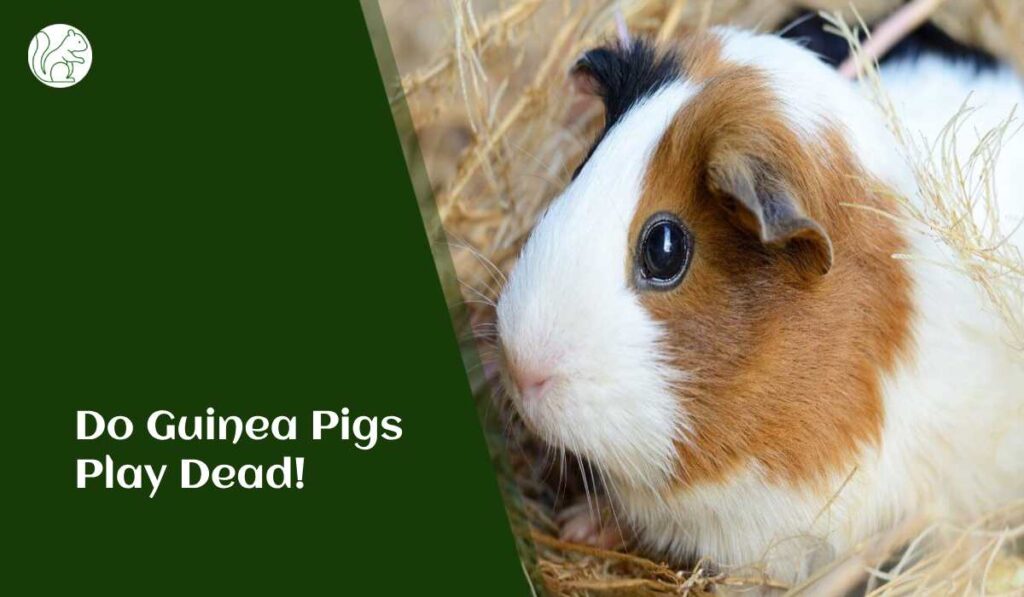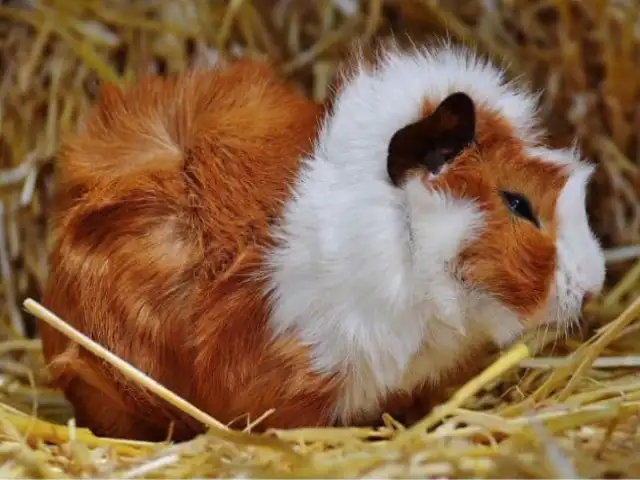Guinea pigs, also known as cavies, are adorable and sociable pets that bring joy to many households. These small herbivores are known for their charming personalities and unique behaviors. One of the intriguing behaviors that guinea pigs sometimes exhibit is playing dead. In this article, we will explore the phenomenon of guinea pigs playing dead, understand why they do it, and provide insights into their behavior.

1. What Does It Mean When Guinea Pigs Play Dead?
When a guinea pig plays dead, it essentially goes into a state of immobility, appearing lifeless to observers. This behavior can be mistaken for a serious health issue or even death itself. However, it is important to note that guinea pigs playing dead is a natural instinct and not a cause for alarm.
2. Understanding the Reasons Behind Playing Dead
Guinea pigs play dead as a defense mechanism to protect themselves from potential threats in their environment. By remaining still and silent, they hope to deceive predators or perceived dangers and avoid further harm. It is similar to the “freeze” response seen in other animals, where immobility is used as a survival strategy.
3. Triggers for Playing Dead
Several situations or stimuli can trigger the play dead behavior in guinea pigs. Some common triggers include:
A. Loud Noises or Sudden Movements
Loud noises or sudden movements can startle guinea pigs, leading them to instinctively play dead. This behavior allows them to hide from potential threats that they perceive in their surroundings.
B. Feeling Threatened or Cornered
When guinea pigs feel threatened or cornered, they may play dead as a last resort to escape danger. By remaining motionless, they hope to confuse their predators and create an opportunity to flee.
C. Stressful Environments
Stressful environments, such as overcrowded cages or unfamiliar surroundings, can also trigger the play dead response in guinea pigs. It serves as a coping mechanism for them to deal with overwhelming situations.
4. Recognizing the Signs of Playing Dead
To distinguish between an actual health issue and a guinea pig playing dead, it is essential to recognize the signs. When a guinea pig is playing dead, you may observe the following behaviors:
- Motionless body and limbs
- Closed eyes
- Limp posture
- Reduced or shallow breathing
- Lack of response to touch or external stimuli
5. How to React When Your Guinea Pig Plays Dead
If you witness your guinea pig playing dead, it is crucial to remain calm and avoid causing any further distress. Follow these steps to handle the situation appropriately:
A. Observe from a Distance
Give your guinea pig some space and observe from a distance. Avoid making sudden movements or loud noises that could startle them further.
B. Provide a Safe Environment
Ensure that the immediate environment is free from any potential threats or stressors. Remove loud noises, reduce foot traffic, and create a peaceful atmosphere to help your guinea pig regain a sense of security.
C. Wait for Natural Recovery
In most cases, guinea pigs will naturally recover from the play dead state within a few minutes to half an hour. During this time, refrain from touching or handling them to avoid further distress.

D. Monitor for Behavioral Changes
After your guinea pig has recovered, closely monitor their behavior for any signs of distress or health issues. If you notice any concerning symptoms or prolonged lethargy, consult a veterinarian for a thorough examination.
6. The Importance of Providing a Safe and Stimulating Environment
To minimize stress and the likelihood of your guinea pig playing dead, it is crucial to provide a safe and stimulating environment. Here are some tips to create an optimal living space for your furry friend:
- Ensure an adequately sized cage with enough room for exercise and exploration.
- Provide hiding spots and tunnels for your guinea pig to retreat to when they feel the need.
- Offer a balanced and nutritious diet consisting of fresh hay, vegetables, and guinea pig pellets.
- Engage in regular interactive play sessions and provide toys to stimulate your guinea pig’s mental and physical well-being.
Conclusion
While it may come as a surprise or cause momentary concern, the behavior of guinea pigs playing dead is a natural defense mechanism. By understanding the reasons behind this behavior and responding appropriately, you can ensure the well-being and happiness of your beloved guinea pig. Remember to provide a safe and enriching environment, monitor their behavior, and seek professional advice when needed. With your care and attention, your guinea pig will thrive and continue to bring joy to your life for years to come.
